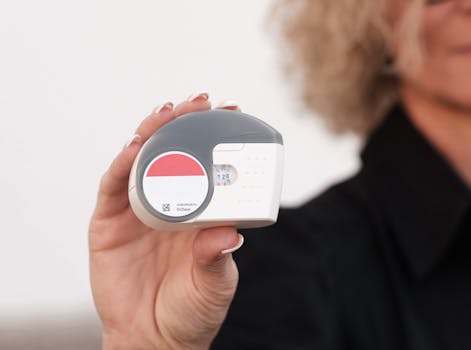
Table of Contents
- Smart Home Technology
- Wearable Fitness Trackers
- Telehealth and Virtual Care
- Mindfulness and Wellness Apps
- Sustainable Technology
Smart Home Technology


Smart thermostats, such as the Nest Learning Thermostat, adapt to your habits, learning when you are home and when you are away, adjusting temperatures accordingly to save energy. Additionally, smart lighting systems can be programmed to adjust brightness and color temperature based on the time of day, promoting better sleep and enhancing mood.
Moreover, smart home security systems provide peace of mind, allowing homeowners to monitor their property in real-time and receive alerts on suspicious activities. This integration of technology into our homes fosters a more comfortable, secure, and energy-efficient lifestyle.
Wearable Fitness Trackers

These wearables motivate users to set and achieve fitness goals through real-time feedback and data analysis. For instance, many trackers provide insights into your daily activity levels, encouraging you to move more and sit less. They also offer reminders to stay hydrated and take breaks during work hours.
With the integration of health monitoring features, users can keep an eye on their well-being, detecting irregularities and promoting a proactive approach to health management. As technology advances, wearables are becoming more sophisticated, incorporating features like ECG monitoring and blood oxygen measurement, making them essential tools for personal health management.
Telehealth and Virtual Care

This change not only increases accessibility but also saves time and reduces the burden on healthcare facilities. Virtual consultations can be conducted via video calls, allowing doctors to diagnose and treat patients effectively, often leading to quicker recovery times.
Telehealth services have proven especially beneficial during the COVID-19 pandemic, enabling individuals to receive necessary care while minimizing the risk of virus transmission. As telehealth continues to evolve, it is expected to play a significant role in the future of healthcare, providing convenience and improving patient outcomes.
Mindfulness and Wellness Apps

These applications provide personalized experiences, allowing users to select the type of content that resonates with their needs, whether it’s stress relief, sleep improvement, or focus enhancement. The accessibility of these resources encourages more individuals to prioritize their mental health and incorporate mindfulness practices into their routines.
Furthermore, many wellness apps feature community support, enabling users to connect with others on similar journeys, fostering a sense of belonging and encouragement. The integration of technology into mental health practices marks a significant step towards promoting holistic well-being.
Sustainable Technology

Solar technology, for instance, allows homeowners to harness renewable energy, significantly lowering their utility bills and reducing reliance on fossil fuels. Additionally, energy-efficient appliances use less energy to operate, contributing to lower energy consumption and less waste.
Electric vehicles are also gaining traction, providing a cleaner alternative to traditional gasoline-powered cars. With advancements in battery technology, electric cars now offer longer ranges and faster charging times, making them a practical option for many consumers. The shift towards sustainable technology not only benefits the planet but also enhances the quality of life for individuals seeking to make environmentally conscious choices.




